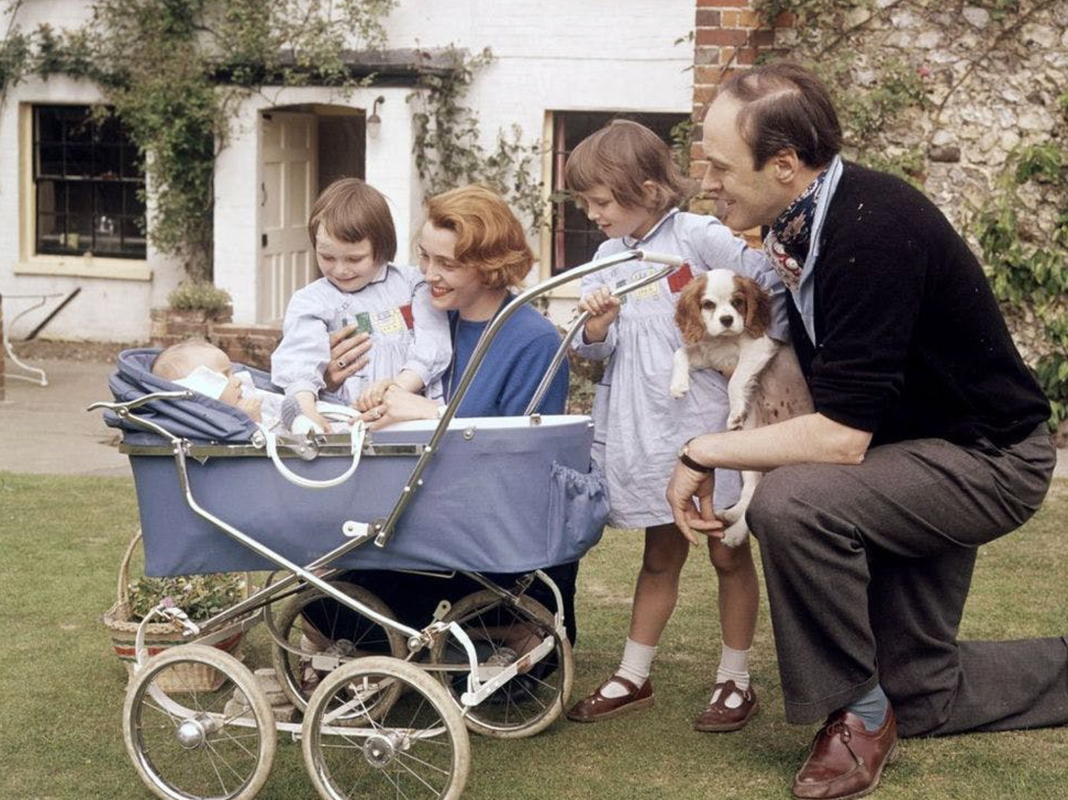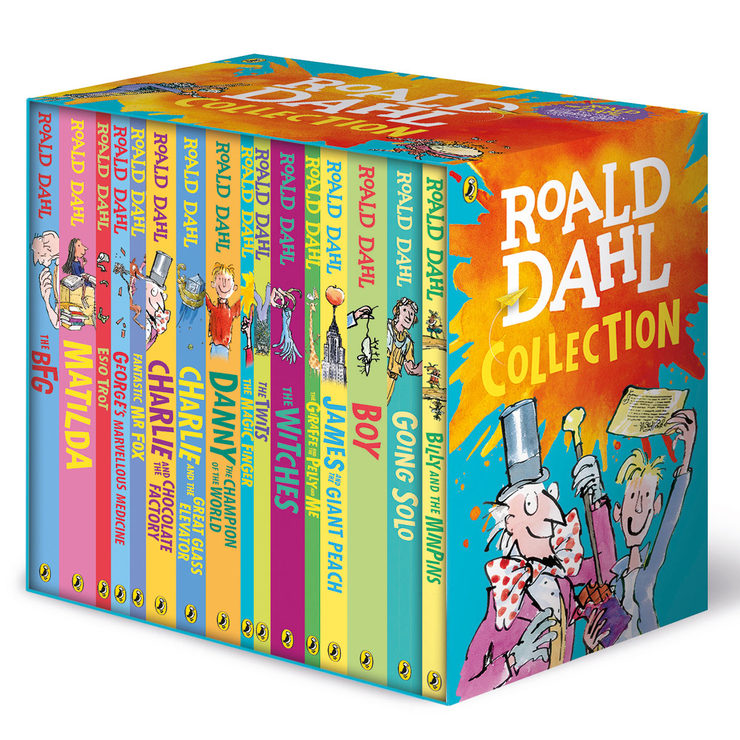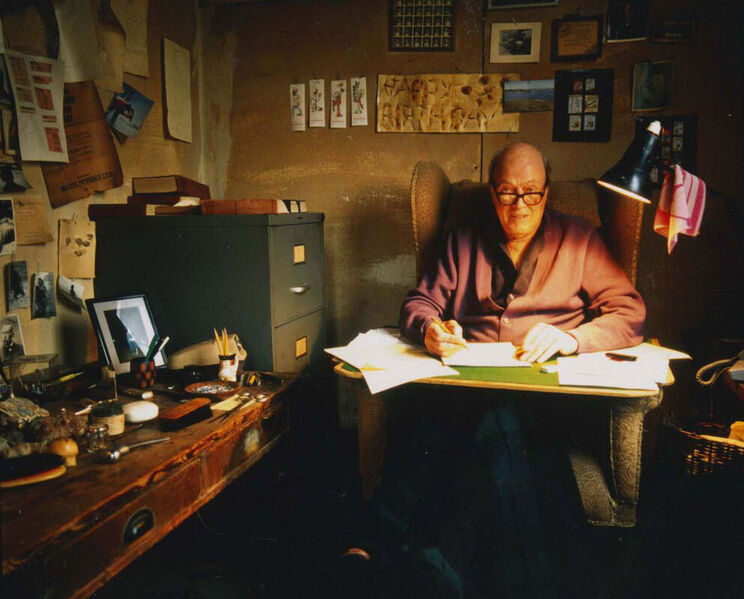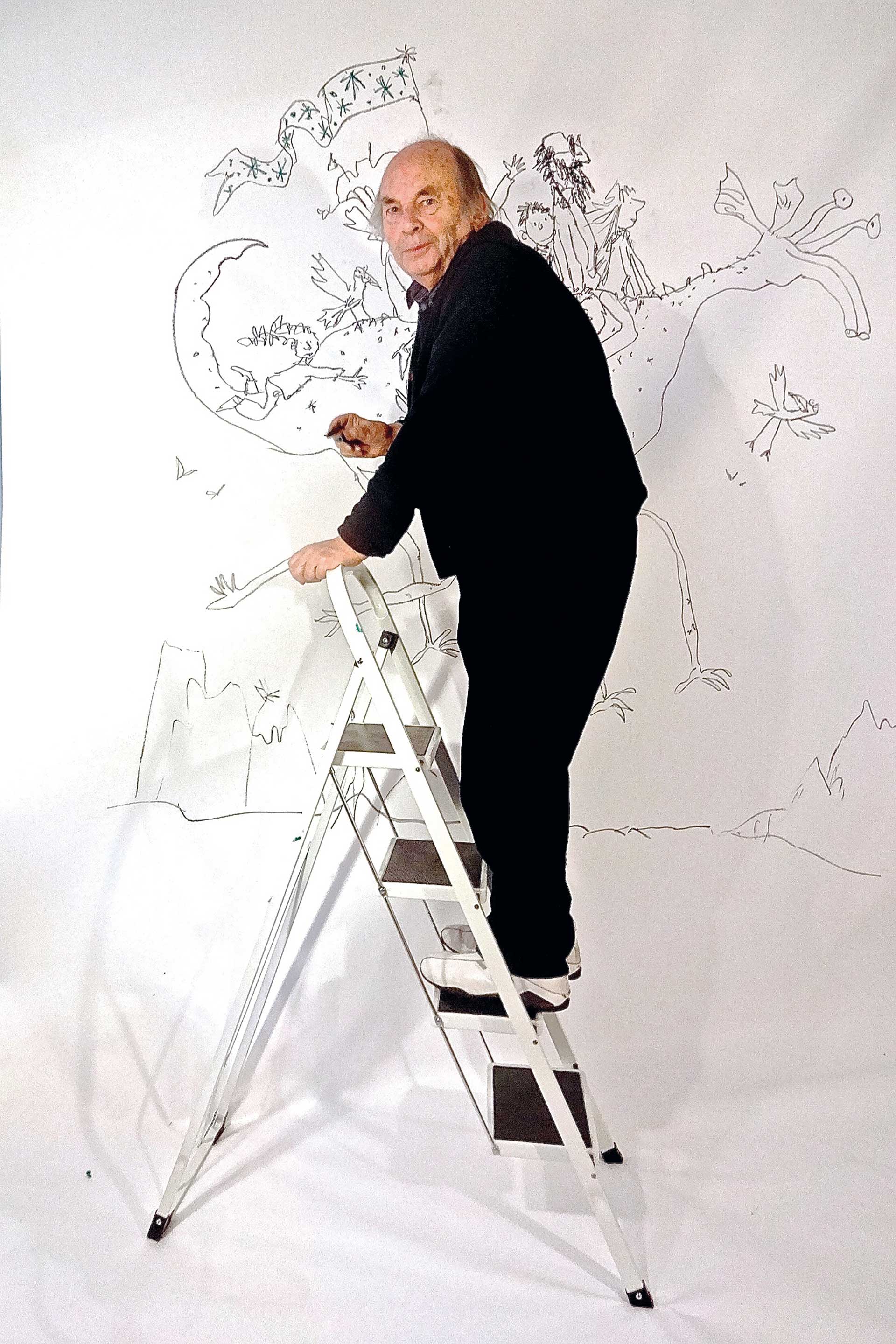Roald Dahl with his wife, Patricia Neal, and their three young children.
Matilda is a sweet, exceptional young girl, but her parents think she's just a nuisance. She expects school to be different, bother she has to face Miss Trunchbull, a kid-hating terror of a headmistress. When Matilda is attacked by the Trunchbull, she suddenly discovers she has a remarkable power with which to fight back. It'll take a superhuman genius to give Miss Trunchbull what she deserves, and Matilda may be just the one to do it!
FOCUSING ON THE FOLLOWING (affective activities planned for each):
...FROM “MATILDA” (these will each be used for individual student journaling)
1. “So Matilda’s strong young mind continued to grow, nurtured by the voices of all those authors who had sent their books out into the world like ships on the sea.” (meaning)
2. “All the reading she had done had given her a view of life that they had never seen.” (developing empathy)
3. “Sometimes Matilda longed for a friend, someone like the kind, courageous people in her books.” (evaluation)
4. “It was pleasant to take a hot drink up to her room and have it beside her as she sat in her silent room reading in the empty house in the afternoons.” (creativity --design your place)
5. “The books transported her into new worlds and introduced her to amazing people who lived exciting lives. She went on olden-day sailing ships with Joseph Conrad. She went to Africa with Ernest Hemingway and to India with Rudyard Kipling. She travelled all over the world while sitting in her little room in an English village.” (books from other places)
6. "Mr Hemingway says a lot of things I don’t understand," Matilda said to her. "Especially about men and women. But I loved it all the same. The way he tells it I feel I am right there on the spot watching it all happen." (word choice to paint a realistic picture and feeling)
7. “And don’t worry about the bits you can’t understand. Sit back and allow the words to wash around you, like music.” (the poetry of writing)
8. “These books gave Matilda a hopeful and comforting message: You are not alone.” (affective)
9. “If it’s not right, you have to put it right.” (courage)
10. “Nobody but me is gonna change my story.” (affective)
11. “Even if you’re little, you can do a lot.” (pro-active young people)
12. “Every day starts with the tick of a clock. All escapes start with the click of a lock.” (grit & opportunity)
LIFE LESSONS IN "MATILDA". (activities in parentheses)
1. Reading is actually a really cool thing to do. (reading verses video games research, discussion, debate)
2. The library can be a magical place and an escape if you need it to be. (researching the world's best libraries)
3. You shouldn't trust chocolate cake. ; ) (self discipline)
4. Despite what Miss Trunchbull says, wearing pigtails doesn't make you a pig. ; ) (how to combat bullying)
5. Don't misbehave in school, because you don't want to deal with The Chokie. ; ) (bizarre humor)
6. When someone says things like, "I'm smart, you're dumb. I'm big, you're little. I'm right you're wrong," the opposite is almost always true. (guarding your words & reading between the "line")
7. Don't be afraid to highlight your strengths, like Matilda did with her math skills. (use your abilities)
8. As the narrator told us from the beginning, "Everyone is born, but not everyone is born the same." (empathy)
9. You can become independent at a very young age. (responsibility)
10. Sometimes you look at relatives and the connection just doesn't make sense, because the family members are completely different from one another. (believe in yourself)
11. And sometimes, family isn't blood, but the people who want the best for you. (choosing your filter)
1. “So Matilda’s strong young mind continued to grow, nurtured by the voices of all those authors who had sent their books out into the world like ships on the sea.” (meaning)
2. “All the reading she had done had given her a view of life that they had never seen.” (developing empathy)
3. “Sometimes Matilda longed for a friend, someone like the kind, courageous people in her books.” (evaluation)
4. “It was pleasant to take a hot drink up to her room and have it beside her as she sat in her silent room reading in the empty house in the afternoons.” (creativity --design your place)
5. “The books transported her into new worlds and introduced her to amazing people who lived exciting lives. She went on olden-day sailing ships with Joseph Conrad. She went to Africa with Ernest Hemingway and to India with Rudyard Kipling. She travelled all over the world while sitting in her little room in an English village.” (books from other places)
6. "Mr Hemingway says a lot of things I don’t understand," Matilda said to her. "Especially about men and women. But I loved it all the same. The way he tells it I feel I am right there on the spot watching it all happen." (word choice to paint a realistic picture and feeling)
7. “And don’t worry about the bits you can’t understand. Sit back and allow the words to wash around you, like music.” (the poetry of writing)
8. “These books gave Matilda a hopeful and comforting message: You are not alone.” (affective)
9. “If it’s not right, you have to put it right.” (courage)
10. “Nobody but me is gonna change my story.” (affective)
11. “Even if you’re little, you can do a lot.” (pro-active young people)
12. “Every day starts with the tick of a clock. All escapes start with the click of a lock.” (grit & opportunity)
LIFE LESSONS IN "MATILDA". (activities in parentheses)
1. Reading is actually a really cool thing to do. (reading verses video games research, discussion, debate)
2. The library can be a magical place and an escape if you need it to be. (researching the world's best libraries)
3. You shouldn't trust chocolate cake. ; ) (self discipline)
4. Despite what Miss Trunchbull says, wearing pigtails doesn't make you a pig. ; ) (how to combat bullying)
5. Don't misbehave in school, because you don't want to deal with The Chokie. ; ) (bizarre humor)
6. When someone says things like, "I'm smart, you're dumb. I'm big, you're little. I'm right you're wrong," the opposite is almost always true. (guarding your words & reading between the "line")
7. Don't be afraid to highlight your strengths, like Matilda did with her math skills. (use your abilities)
8. As the narrator told us from the beginning, "Everyone is born, but not everyone is born the same." (empathy)
9. You can become independent at a very young age. (responsibility)
10. Sometimes you look at relatives and the connection just doesn't make sense, because the family members are completely different from one another. (believe in yourself)
11. And sometimes, family isn't blood, but the people who want the best for you. (choosing your filter)
The Writing Hut was central to Dahl’s writing process. He would go down to the hut in the morning with a thermos of coffee, sit down and pull out his custom made writing board; the board was covered in green baize felt because he found it easy on the eyes. He would then brush off the rubber shavings from the previous day’s work with a stiff clothes brush and sharpen his pencils before starting work. (from roalddahl.com)
R E S O U R C E S
PENGUIN Matilda Lesson Plans - GOOD!
GREAT "Matilda" the musical resource --also teaches kids about theater etiquette!
| matilda-eg-2018.pdf | |
| File Size: | 4116 kb |
| File Type: | |
The Roald Dahl Website has GREAT lesson plans for most of his books. Check out the pdf below to see lessons for Chapter 1 of "Matilda." The website has an option for viewing by teachers or for students.
| chapter_1_lesson.pdf | |
| File Size: | 530 kb |
| File Type: | |
Additional RESOURCES for "Matilda"
UK - MATILDA THE MUSICAL
CHILDREN'S THEATER GUIDE TO "MATILDA"
LEARN ABOUT ROALD DAHL'S ILLUSTRATOR:
|





